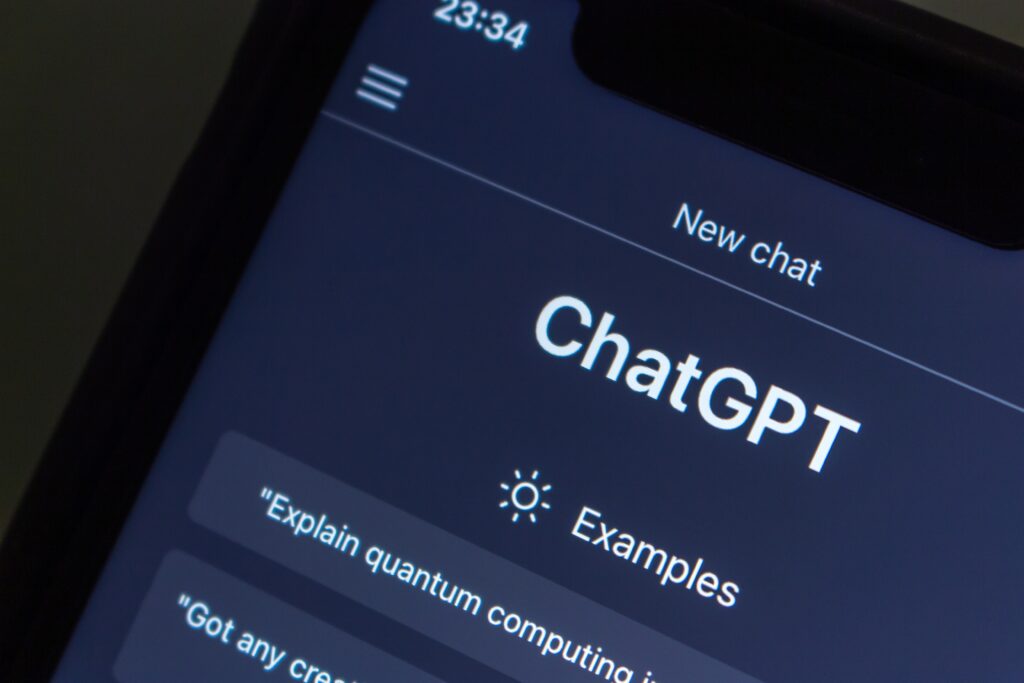Opinion piece in Altinget
ChatGPT ushers research into a new era – calling for new rules of the game

Language models like ChatGPT will change how we conduct research. To ensure transparency and maintain trust in research, a code of conduct should be drawn up, writes the Royal Academy in Altinget, an online Danish political review.
Authors of the opinion piece:
- Kim Guldstrand Larsen, professor, Department of Computer Science, Aalborg University, member of Royal Academy
- Susanne Ditlevsen, chair of the natural sciences class at the Royal Academy and professor at the Department of Mathematical Sciences, University of Copenhagen
- Thomas Sinkjær, secretary general, Royal Academy and professor at the Department of Medicine and Health Technology, Aalborg University
- Kristoffer Frøkjær, former head of communications, Royal Academy
Israeli researchers recently produced a research paper in less than an hour with the help of ChatGPT.
Fluent and insightful, the article adhered to the expected format of scientific articles. The results, however, were nowhere near close to being novel. This will change in the future.
ChatGPT and similar large-scale language models will likely have a profound impact on a variety of sectors and industries, especially research.
Technology has always been an engine in the advancement of science, for example the invention of the printing press and CRISPR. Game-changing technology can open up new possibilities, influence the internal dynamics of research and set new directions for exploratory research.
In addition, it can also lead to a renegotiation of how science is conducted, particularly the underlying ethical framework. Researchers who are familiar with the new technology will be in the best position to help shape how it is used.
ChatGPT is an example of this new revolutionary technology.
The nature of research will change
Language models like ChatGPT can take research in new directions by rapidly analysing vast amounts of scientific literature, identifying relevant articles and summarizing them. They will save time and help researchers stay up to date.
ChatGPT can perform routine tasks. With language models automating tedious and repetitive tasks, such as generating reports and formatting data, researchers will have additional time to focus on more creative and complex tasks.
Language models can assist them in exploring complex datasets and generating hypotheses. Beyond writing scientific papers, the models can discover hidden patterns and relationships in data that can lead to new ideas, research questions and discoveries.
Thus, with language models like ChatGPT science is looking into a future where the nature of research and the time spent on tasks will change.
Responsibility lies with more than just researchers
The development of language models is occurring at breakneck speed. The quality of mathematical problem solving, for instance, has leapt from the equivalent of a fifth-grade level to that of a secondary school student in the space of a few years. GPT-4 now functions at the level of an accomplished first-year university student.
As a research tool, however, language models are still full of contrived, biased or ethically questionable results that can be difficult to detect but still highly convincing, for example by hallucinating or referring to non-existent research articles.
Language models generate texts based on statistical patterns in a vast amount of training data from the internet to create new, probable answers, but those answers are not necessarily true. Consequently, researchers must be critical of the answers ChatGPT produces.
But the responsibility lies with more than just the individual researchers.
Code of conduct required
Clear-cut general guideless are necessary on the use of the new technology, e.g. as touched upon by the European Code of Conduct for Research Integrity.
The code of conduct must cover what language models should – and should not – be used for in research and be incorporated in the Danish Codex for Integrity in Research.
The code of conduct should emphasise the need for full transparency on how and for what purpose language models are used in research so that other researchers can assess and reproduce the results. It also should underline the importance of transparency on the data used to train the models.
Currently, proprietary algorithms, i.e. a black box, make it impossible to know what information forms the basis for language models. All information in training sets must be accurate, unbiased and comply with data storage, rights and access requirements.
Embracing the new technology
A code of conduct must also include clear ethical guidelines for the use of language models in research to safeguard against accusations of misconduct and to maintain trust in research.
Language models represent a groundbreaking and staggeringly efficient technology, the potential of which we do not yet know, which means it is associated with immense uncertainty. Many people are discussing that the technology should be put on hold, but whether this is even possible is doubtful.
As has previously been the case with new technology, research is best served by embracing it and actively participating in managing how to best utilise it for the benefit of research.
Preferably under a common, carefully considered code of conduct.
Read the Altinget opinion piece.


